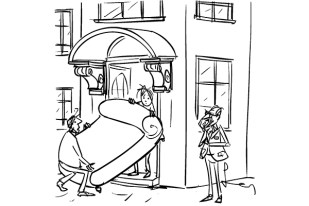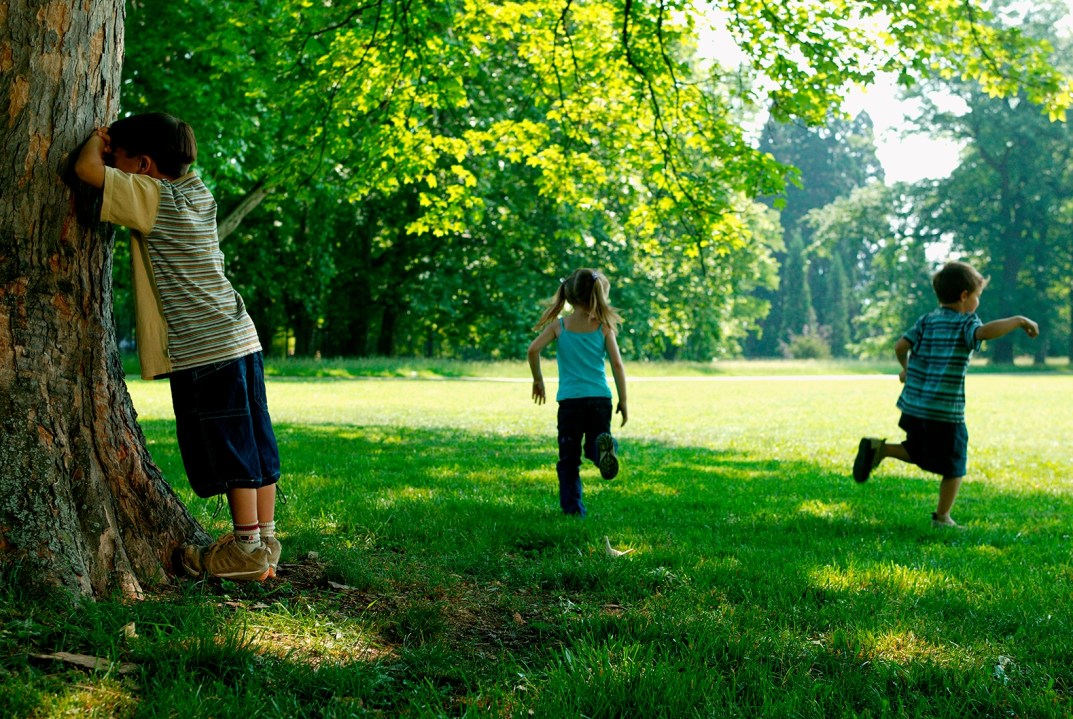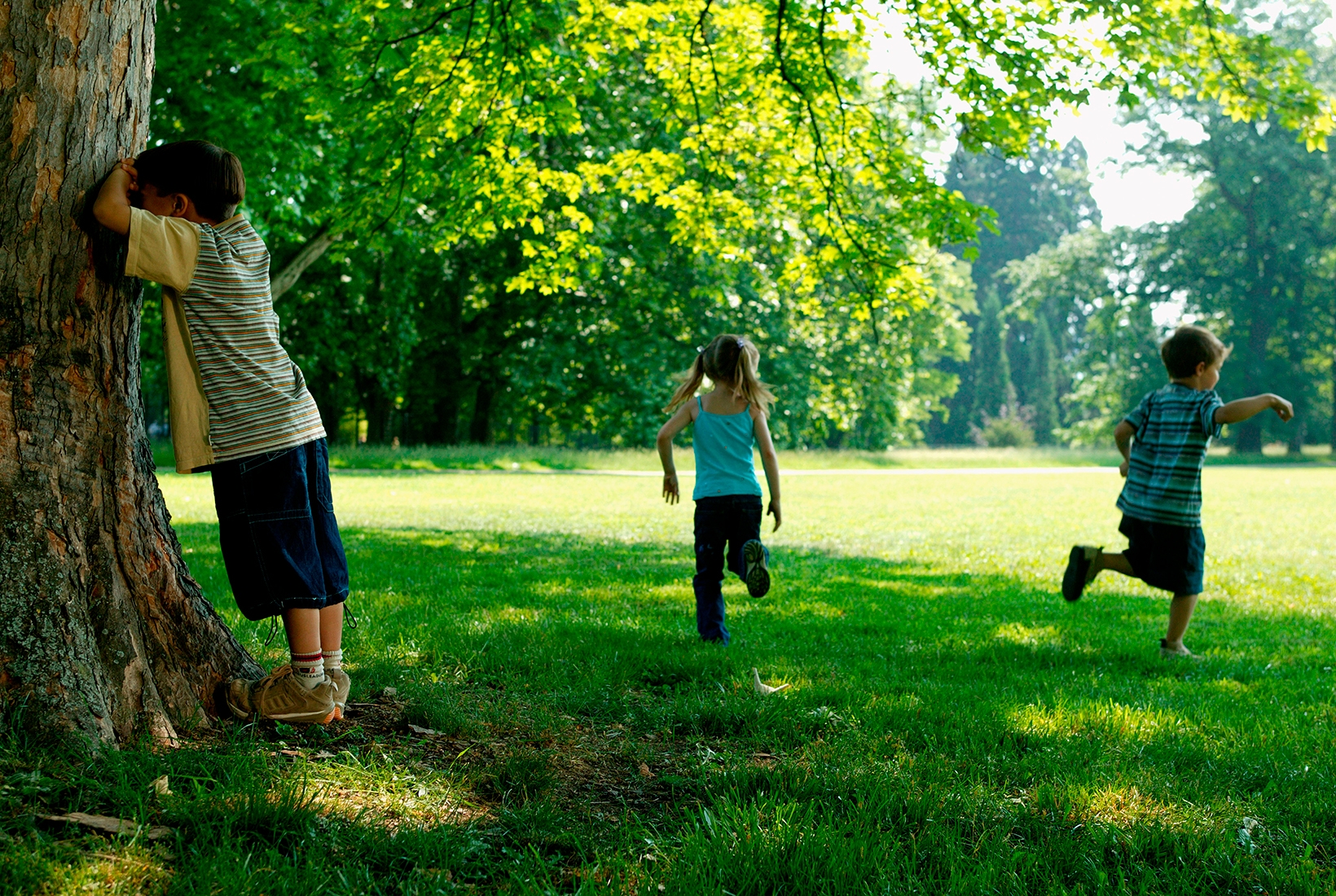We live in an urban world. It’s a statistical fact. The great outdoors for most of us is a thing of the past — a place, like elderly relatives, to be visited infrequently and preferably with gloves. Metro world, by contrast, is safe, insulated, inviting. No getting wet in the rain, no patchy wifi, no mud on our new Nikes.
Little wonder that our education system has gone the same way: safe, sedentary, sterile. Patrick Barkham thinks there might be a better way. Give kids more space, he pleads. Free them up from rules and tests. Climbing trees, prodding roadkill, collecting grubs: hell yes, if they want to, why not?
The statistics (that boring, schooly word again) suggest he might be on to something. One in eight British youngsters can’t identify an oak leaf. Important? Perhaps not; but the rise in child obesity, anxiety and just plain unhappiness is harder to overlook. In a world in which children’s terrain has been ‘radically annexed’ and play ‘institutionalised’, is it time to join the dots?

Wild Child, fortunately, is no lefty harangue. Yes, Barkham is a white, middle-class, Norfolk-residing Guardianista (literally; he’s on the payroll) who sends his children to a forest school equivalent. But he is sensitive to this fact and, better still, knows that nature-bashing will win him few converts (and fewer readers). Wisely, he has opted to write a ‘show-not-tell’ style of book — albeit one that explicitly sets out to relate an ‘empowering and hopeful story’ about the benefits of engaging with the outdoors.
The basic structure is provided by his year as a regular volunteer at Dandelion, a nature-based nursery school near his home. Adventures with his own primary-aged children — twins Esme and Milly (‘hunter’ and ‘collector-in-chief’, respectively) and their younger brother and fungus-aficionado Ted — pad out the pages in between.
Is Wild Child a balanced account? Not on your nelly. Dandelion may look a little ‘ramshackle’ from the outside, with its tree stumps for chairs and scruffy yurt for shelter, but through Barkham’s eyes it is transformed into an enchanted, almost spiritual space. Like one long scout camp, pupils spend their days playing tag and burying themselves in leaves. Disciplinary actions (or ‘chitty chatties’) are minimal, group-singing is frequent and exposure to the elements is near constant.
Similarly, at home, nature-rich adventures abound. Afternoons are lost to searching out birds’ nests and hiding in hedges. Caterpillars disappear into chrysalises, ‘pffft. Better than magic’. In one memorable episode, the Barkham clan head out with a freezer-hard chaffinch to visit Bernie, a local taxidermist, whose cabinet-lined workshop proves as exciting as it’s instructive (‘We’ve become adroit at avoiding death’).
Every now and then blots in the idyll are revealed. Dandelion may be a place of ‘unconfined joy’, but not all the kids are smiling. Lily, a rebellious sort who prefers Minecraft to mud, asks to be withdrawn. Even Barkham’s own children, who also attend, blow hot and cold. Esme is the book’s wild child, but Milly prefers the sit-down, hands-up, shush-now structure of conventional school.
Barkham sets out to offer hope. Every parent knows, deep down, that screens are the devil’s handiwork. Most, like Barkham, have happy memories of walking to school or collecting conkers. While some might write off as hippy-dippy the idea of tree-climbing being ‘fundamental’ to good schooling, few can find fault with the basic premise of children needing time in nature.
The underlying argument in Wild Child is not a new one, as the prescient quotes at the start of each chapter reveal: ‘They will forget their books — they will never forget the grass fields’ (Richard Jefferies); ‘The best classroom is roofed only by the sky’ (Margaret McMillan). It’s all very inspiring, and no doubt very true; only try telling Ofsted.
Much as Barkham would like to see our education system overhauled, this isn’t his mission here. Wild Child’s ambitions are altogether more modest. In the environmental canon, it’s more love letter than treatise, more trumpet call than warning shot. A self-confessed latecomer to the joys of wildlife, the author wants others to share his passion — starting with his own children (who have little choice) and then everyone else’s.
Choice, of course, is relative. Not everyone has a Dandelion on their doorstep. Yet, as Barkham argues, nature is within a stone’s throw of us all, even the most hardened city-dwellers. In a lengthy prologue he offers 50 tips on how to find it, from cloud-watching and moth-trapping to Pooh sticks and pebble poems.
Rose-tinted as Wild Child may be, its message is an urgent one. As environmentalists often fret, if children don’t learn to love nature now, they won’t think to fight for it tomorrow. So, a future of Dandelions or doomsday? Statistically speaking, it’s not that binary. Even so, we ignore the lessons of the first at our peril.







Comments